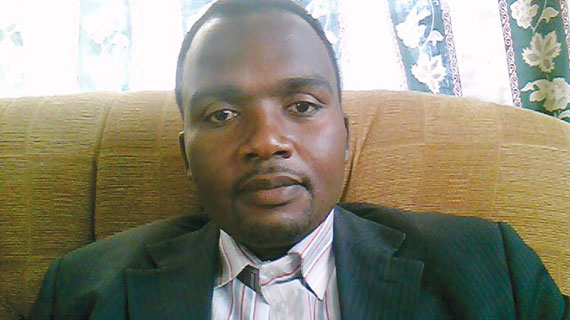
TECHNOLOGY like any good thing or invention has the potential of being abused. The purpose of technology is to simplify business, educational, health and governmental processes and activities.
Technology is to contemporary society what iron was to the Iron Age. It is difficult to imagine people living profitably without the implements that technology has produced such as cars, cellular phones, aeroplanes, computers and televisions.
The advent of the Internet has facilitated instantaneous communication between far-flung business partners. The snail mail (post office system of communication) has now been superseded by Internet-based and satellite communication. Despite the advantages of technology, it has several pitfalls that are worth exploring so that people have a balanced perspective towards it.
Fraudulent activities There are ravening wolves all over the cyber world that seek to prey on the unsuspecting public. It is quite amazing that even though there is a lot of information in the public domain that warns people against engaging in serious business and social activities with people or institutions whose identity cannot be ascertained, many people are defrauded through the Internet on a daily basis.
Cyber criminals use quite a number of strategies in an attempt to deprive the unsuspecting public of their hard-earned cash and their innocence.
The most common scam on the internet is that of a person or people who access one’s email and other personal details unlawfully through cyber attacks and use that information to establish communication.
The storyline normally follows the trend of informing a person that he or she has won a huge amount of money through an online lottery. The would-be victim is then told to contact a certain person by e-mail so as to supply further details by filling in what is normally a standard questionnaire or form used for defrauding people.
At a certain stage, the potential victim is asked to make a “small deposit” so that his or her millions can be released without much time wasted. If the person makes the deposit, these criminals disappear from the internet.
- Chamisa under fire over US$120K donation
- Mavhunga puts DeMbare into Chibuku quarterfinals
- Pension funds bet on Cabora Bassa oilfields
- Councils defy govt fire tender directive
Keep Reading
If they were also using phones, those phones are either blocked or programmed in such a way that for some time they do not receive calls from a certain place, country or region.
The second most common form of Internet fraud is one that involves flirting on the Internet with people one has never seen and usually who are so far away that the probability of meeting with them in real life is next to zero.
A person on the internet may target ladies and pretend to be a man who is searching for love. The unsuspecting lady also searching for love may jump at such a great opportunity to establish a cross-cultural relationship. At a certain point in time she may be invited to the United States, United Kingdom, Hong Kong, South Africa or Australia.
She may receive money and other goodies from abroad. If she eventually goes to where the perpetrator of this fraud is, the lady may be shocked to discover that she has been recruited into prostitution or a criminal gang engaging in drug trafficking and other heinous crimes.
Occasionally she may be told that to facilitate her passage to a foreign country (usually a country with a stable economy), she needs to pay a certain fee.
If she has been deceived by the lie of the internet she may send her hard earned cash to someone she does not know. After that all communication will be broken and she will be left with very serious disappointment.
At times cyber criminals target men. Once the internet fraudster has established through identity theft methods such as phishing that the target victim is a man, he may pretend to be a young lady (usually a good looking one) who has searched high and low for true or genuine love.
The unsuspecting internet user deceived by his own lust may believe that pictures of a woman plus a scant profile on Facebook, Twitter or Hi5 constitute the identity of an actual person.
He may then fall in love with a fictional internet creature or character which will then be used to defraud him of his hard-earned cash and other benefits. During these days of photoshop and photoscape it is not difficult to get a picture of any person (man or woman) from the Internet or from elsewhere, redesign it and use it to perpetrate fraudulent activities.
The public ought to be aware that dealing at a serious emotional level with strangers (usually those that are far away or pretend to be far away) is courting for trouble.
Security and safety concerns The Internet has been used by criminals to breach the security of institutions that even include government institutions. The whole business of Wikileaks and the activities of people like Julian Assange are based on undermining and breaching state information systems using technology. This may have serious ramifications on diplomatic and other international relations.
Terrorists habitually hack into targeted government military systems to steal official secrets and strategies thereby endangering the security and wellbeing of citizens of a country.
This implies that governments and government institutions have a duty to invest a lot of resources into monitoring suspicious activities through Internet and satellite based systems and nipping them in the bud.
Of course a concern for state security has to be delicately balanced with the human appetite for privacy which is one of the fundamental rights enshrined in the United Nations Bill of Rights and other similar charters found in many countries and regions all over the world.
Terrorists have also inadvertently gained a lot of notoriety or mileage through the medium of digital satellite television. A case in point is the #BringBackOurGirls campaign whose major aim is to conscientise the Nigerian government and other stakeholders to work hard for the restoration of the girls who were kidnapped from Eastern Nigeria by the Boko Haram militant group.
The exact whereabouts of those girls is not really known to this day. This implies that the international news media such as CNN, BBC, Al-Jazeera and many other networks that covered the story of the abducted girls inadvertently provided the militant group with free advertising and publicity.
It is difficult for the news media to ignore terrorism in the name of not wanting to advertise it. This implies that editors have to exercise a lot of discretion on how much of terrorism to cover on mainstream television or the conventional print media.
Ian Ndlovu is an economist at the National University of Science and Technology skilled in data analysis using SPSS, Gretl, Stata, E-views and Microsoft Excel software packages. His research interests cover business, development, economic and e-commerce issues. He writes in his personal capacity.










